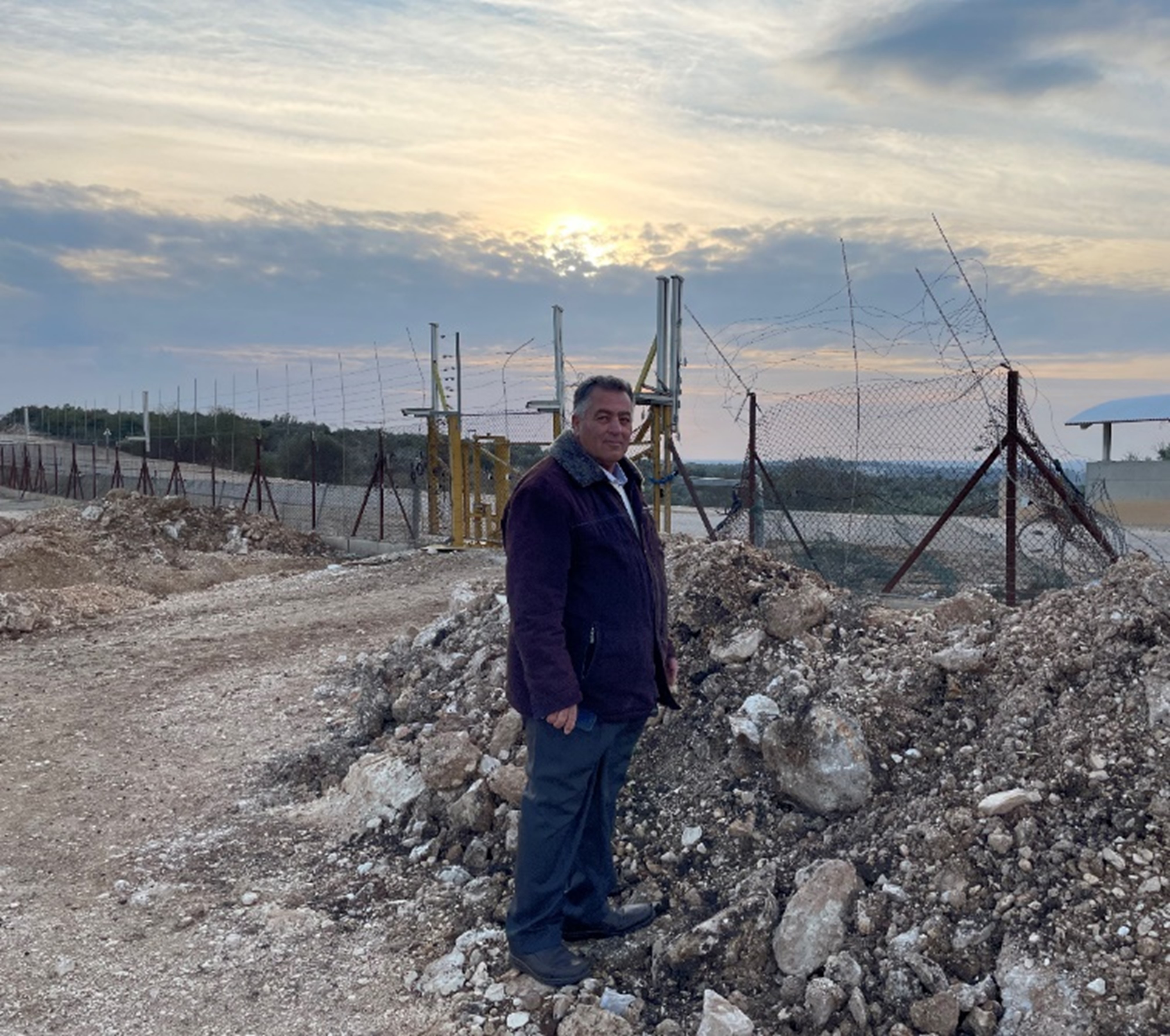Feeding your family when your fruit trees are isolated behind a fence
Taysir Amarneh is a farmer whose land has been behind a closed fence for twenty years now. He lives in the Palestinian village of Akkaba, where 88 per cent of residents’ farmland is physically separated from the community.
In 2002, the Israeli authorities started building a 713-kilometre-long Barrier with the stated aim of preventing violent attacks inside Israel by Palestinians from the West Bank. However, 85 per cent of the route runs inside the occupied Palestinian territory rather than on the internationally recognized border. The Barrier therefore separates Palestinian from their families, from basic services, and from livelihoods, increasing people’s dependency on humanitarian assistance.
Behind the fence, Tayseer has about 700 olive trees. To cultivate them, he and his workers must obtain a special permit from the Israeli authorities. Even when such permits are granted, access to and from his land is only possible during the very limited opening hours of the nearby agricultural gate.

“Limited access means that year-round activities, like plowing, fertilizing and weed management, are impossible,” Taysir told us. “Alongside a cold wave that hit this area in February 2021, this has significantly reduced our yield.” In 2021, he produced about 270 kilograms of olive oil from the isolated trees, down from 700 kilograms in 2020.
The approval rates of requests made by Palestinian farmers across the West Bank to access their own lands, behind the Barrier, declined from 71 per cent in 2014 to 24 per cent in 2020. In Taysir’s community, he told us, villagers received about 75 permits in 2021, down from 90 in 2019 and about 180 in 2018.
In 2004, just two years after the beginning of this Barrier’s construction, the International Court of Justice called on the Israeli authorities to cease the construction, dismantle the sections already completed, and repeal all related legislative measures. It had concluded that the sections of the Barrier which run inside the West Bank, including East Jerusalem, together with the associated permit-and-gate regime, violate Israel’s obligations under international law.
Eighteen years on, this Advisory Opinion has not been acted upon, leaving people like Taysir with reduced opportunities and greater reliance on humanitarian interventions. Indeed, the humanitarian community has identified lack of respect to international humanitarian and human rights law as a key component fueling the chronic humanitarian crisis in the occupied Palestinian territory, where two in every five people need humanitarian assistance.









